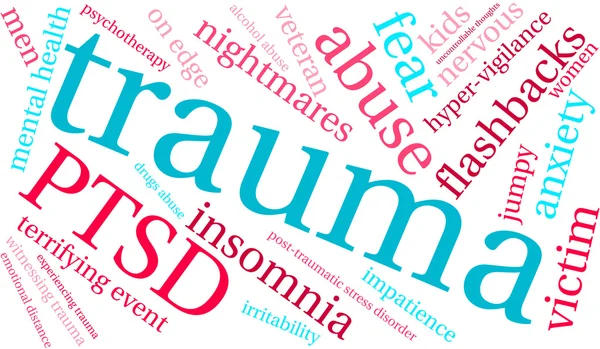 There is a growing movement among human service professionals to provide Trauma Informed Care training and resources to staff. This has been driven by overwhelming research demonstrating the extent and impact of trauma on persons, especially those with disabilities.
There is a growing movement among human service professionals to provide Trauma Informed Care training and resources to staff. This has been driven by overwhelming research demonstrating the extent and impact of trauma on persons, especially those with disabilities.
According to the National Council for Behavioral Health 70% of adults in the U.S. have experienced some type of traumatic event in their lives. (Bureau of Justice Statistics, 2012)
Persons with disabilities are more than three times as likely to experience serious violent victimization than non-disabled individual including rape, sexual assault, robbery and aggravated assault. (Bureau of Justice Statistics, 2012).
Research consistently shows that women with disabilities regardless of age, race, ethnicity, sexual orientation, or class are assaulted, raped, and abused at a rate two times greater than women without disabilities. (Sobsey, 1994; Cusitar, 1994)
The risk of being physically assaulted for an adult with developmental disabilities is 4-10 times higher than for other adults. (Sobsey, 1994; Cusitar, 1994)
Children with disabilities estimated to be 3.4 more likely to experience child abuse than their peers. (Sullivan, 2000; Knutson 2000)
In public behavioral health, more than 90% of all clients have experienced trauma. (Bureau of Justice Statistics, 2012)
While no two persons respond to traumatic events the same, there are many signs and symptoms which have been identified as possible indicators of trauma. The following could be an indicator that the individual you are serving has experienced trauma:
- Fear, anxiety & depression
- Mood Swings
- Difficulty with sleep
- Reactivity to sound or touch
- Angry Outbursts
- Violence or aggression
- High risk behaviors
- Self-injurious behaviors
- Physical pain
- Gastrointestinal symptoms
- Compromised immune system
- Substance use
- Social isolation or withdrawal (ignoring phone calls)
- Avoidant behavior
- Zoning out/ Difficulty focusing
- Behavioral regulation/ Impulse control
- Relational difficulties/ Difficulty trusting others
- Memory deficit
Because of the prevalence of trauma, providers should work to recognize and understand trauma, how it impacts clients, and deliver all services in a way that minimizes the risk of re-traumatization. It is not our role to seek out information about trauma that has occurred- that in and of itself would be traumatizing. Rather, the goal should be to deliver services to all Ticketholders in a way that is Trauma Informed.
Trauma response could be an underlying factor which impacts your Ticketholder’s success in services and at work. If your organization is not already providing training around Trauma Informed Care, I highly recommend adding this as a part of your staff training. Together we can provide support services in a way that is accessible and appropriate to those who may have experienced trauma.
Sources
Sullivan, P. M., & Knutson, J.F., (2000). Maltreatment and disabilities: A population-based epidemiological study. Child Abuse and Neglect, 24, 1257-1273.
Bureau of Justice Statistics. (2012). Prevalence of violent crime among households with children, 1993-2010. Retrieved from http://bjs.ojp.usdoj.gov/index.cfm?ty=pbdetail&iid=4472
SAMHSA’s Concept of Trauma and Guidance for a Trauma-Informed Approach (2014 ). Retrieved from https://ncsacw.samhsa.gov/userfiles/files/SAMHSA_Trauma.pdf
“How to Manage Trauma.” The National Council for Behavioral Health. Retrieved from https://www.thenationalcouncil.org/wp-content/uploads/2013/05/Trauma-infographic.pdf?daf=375ateTbd56.